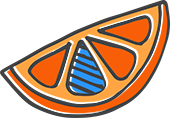Having a fast WordPress website is really important. Not only do users have terribly short attention spans, but when dealing with weak WiFi signals or limited cell data, users want to get the content they are hoping for, quickly.
There are a lot of things you can do to speed up your website but let’s go over 3 plugins that can do the work for you.
Caching plugin
If you’re not familiar with caching, check out this quick breakdown before adding caching to your site. Once you’re done with that article, the next question to ask is if your hosting company uses caching already — if so, you don’t want to add a caching plugin because it can cause conflicts with your hosting account.
If you’re using shared hosting, you likely don’t have server caching. + will want to install a plugin like WP Rocket or W3 Total Cache.
These plugins will deliver a faster experience for your site visitors. Make sure to clear/flush your site’s cache any time you make a big change to the theme or page content.
Image compression
Large images are the number one cause of a slow WordPress website. Which sucks, because big beautiful visuals are great for branding. Plus, a picture is worth 1,000 words, right?
The best way to use big images without sacrificing your site speed is to use an image compression tool. This tool will shrink the image down as much as possible without negatively affecting the image quality.
My favorite resource is TinyPNG. You can either use their website to save your images OR you can use their free WordPress plugin to automatically compress images whenever they are uploaded to your media library.
Fewer plugins will speed up your website
Oh I know, the irony is not lost on me. First I told you a couple plugins to install that will speed up your site + now I’m telling you that the fewer plugins you have, the faster your site will be. But hear me out…
No matter what you’re adding, when you add “stuff” to your site, it’s going to slow down. From images to themes to plugins to blog posts, the more content that your site has to deliver to site visitors, the more time it is going to take to do so.
Caching plugins + image compression tools can be really helpful in speeding up your site. But they can be a band-aid fix to a bigger problem.
Clear out any plugins that you’re not using to see an immediate increase in your site’s performance. And then work through the list of remaining plugins you have to see if you can do without them.
If you only add new header images once in a while, skip the image compression plugin. Instead, focus on saving your header images for web before uploading them to your site. This little bit of extra work will keep your site fast. It will also allow you to ditch one more plugin — which means you don’t have to run updates on it either!
